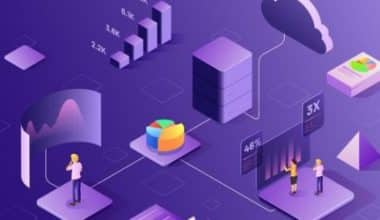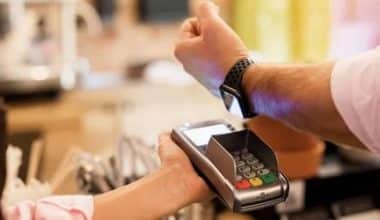A virtual private network (VPN) encrypts data as it travels across the internet from one location to another. It is a good choice to use when you are online and should be implemented. This article talks about the benefits of VPN for business, personal use, and on iPhone.
Read The Top Best 11+ HARDWARE VPN and Reviews in 2023 (+ Detailed Guide).
Overview
While you’re online, a home VPN will conceal your IP address and prevent your ISP from monitoring your behavior. Again, when you use a VPN on your home network, you gain the benefit of anonymous browsing, which can lead to better travel deals, unfettered streaming access, and no digital censorship.
Rather than sending your data through the open highways of the internet, a VPN encrypts your search history, downloaded files, online activities, and geolocation in a private tunnel. The reasons for using a VPN differ from person to person, but it isn’t simply super-sleuths or spy agencies that profit from using one. A VPN can protect you from hackers and other harmful cybercriminals, but it can also provide you with limitless and anonymous internet access.
What is a VPN?
A VPN is an encrypted tunnel for web browsing. The technology enables you to link your device and the server in a safe and secure manner over the internet. It encrypts data that your computer or mobile device uploads to the internet and hides the identity of the device.
Let’s start by taking a look at how accessing the internet seems without a VPN in order to better appreciate how a VPN helps.
Without a VPN, the information you transfer over the internet is exposed and unprotected, especially when going to websites that do not support HTTPS. Hackers can track the trail left by the data in transit to locate and access your IP address. If the disclosed data contains secret information, such as tender bids or M&A agreements, it can have a direct impact on you. Indirect cyberattacks may be launched by hackers who have infiltrated your systems or devices.
By building a virtual network, a VPN encrypts your internet connections. A VPN server connects on your behalf and routes your requests so they don’t go straight to the intended server. The destination server recognizes the VPN server as the traffic origin, not you.
In order to prevent hackers or malware from reading your information, VPN software encrypts your data requests even before your internet service provider (ISP) gets them.
What Are the Primary Advantages of Utilizing a VPN?
A VPN has various benefits. VPN benefits begin with security and progress to improved user experience. Some readers may wonder if it is safe to avoid using a VPN. Your location, digital activity, demand for security, and reliance on insecure public Wi-Fi connections all play a role. The primary advantage of utilizing a VPN is that you are better off with one than without one. The following are the key advantages of utilizing a VPN:
#1. Public Wi-Fi Security
Every now and again, we all need to connect to an unsecured public Wi-Fi network. Whether we’re at a cafe on the run or connected to the less-than-advanced Wi-Fi network at our local library or other public areas, a VPN makes connecting to a public Wi-Fi network safe.
#2. Stream Websites and Content That Are Restricted in Your Region
This is a problem that travelers are all too acquainted with. You pay for a streaming service or online access in one region only to discover that you’re not allowed to access it in another. There are various methods for unblocking websites and gaining access to restricted internet information. The best and simplest solution is to use a VPN.
#3. Avoid Using Censorship
Some governments restrict your freedom to use the internet and access information. Censorship is most commonly found on a national level, but it can also occur when a computer is connected to a workplace or school network. A VPN gets around censorship by allowing you to view content from anywhere in the world.
With a selection of 50 locations worldwide, AVG Secure VPN determines the finest server nations to connect to via VPN.
#4. Security of Online Banking
To get access to accounts and sensitive banking data, many financial organizations (especially in Europe) have used two-factor authentication. Worryingly, many institutions still do not, and your online banking activity on unprotected networks can easily be exposed to hackers. When it comes to the best browsers for security and privacy, some connections are better than others, but nothing beats the security of your own VPN.
#5. Online Purchasing Safety
You disclose your credit card or other payment information every time you shop online. Hackers can readily obtain this information, as well as personal information such as your complete name, date of birth, and address, resulting in identity theft. A VPN protects your connection, allowing you to buy privately and securely online.
#6. When Browsing, Maintain Your Anonymity
Finally, online privacy and anonymous browsing are two of the most frequently mentioned reasons for using a VPN. There are numerous reasons why you would desire to remain anonymous when browsing the web, many of which are related to the VPN benefits discussed above. You may not even realize why you want to be anonymous online until the consequences of oversharing hit you in the face.
Benefits of VPN on iPhone
Businesses and corporations have typically utilized VPNs for internal communication and data transfer needs, such as allowing employees to securely access company data from their home networks. VPNs, on the other hand, have been increasingly popular among internet users in recent years. Having a VPN on your iPhone today provides various advantages and benefits for your business, including the ability to access geo-restricted websites, avoid censorship, and secure your data while using public Wi-Fi networks.
What Are the Advantages of Using a VPN and Why Do I Need One on My iPhone?
Below are the following benefits of VPN on iPhone;
#1. Connect to the Office Network From Afar
From anywhere on the globe, you can utilize VPN technology to remotely access private and confidential data kept on the business network. On the local workplace network, you can set up a VPN server and connect to it via VPN. Most modern companies, like Readdle, now require employees to be connected to a VPN in order to access vital data. This reduces the possibility of illegal access to firm data.
#2. Obtain Access to Geo-Restricted Websites
This is one of the most common VPN applications nowadays. Most VPN programs, like the new Documents app, allow you to connect to several VPN servers across the world, with the option to manually select the appropriate region if necessary. You can opt to browse geo-restricted or region-specific versions of websites from anywhere in the globe in this manner.
#3. Getting Around Network Speed Throttling
In many parts of the world, some local or major ISPs choose to limit the speeds of certain websites or services. To get around this limitation, connect to a VPN tunnel, which makes it nearly impossible for the ISP to detect what’s going on between your device and the VPN server, thereby making it difficult to selectively limit connections.
#4. Website or Application Testing
A VPN connection enables you to test how your website appears to users in various countries across the world. By simulating network access over a VPN, you can easily troubleshoot any loading or speed issues with your website or app and get them fixed.
#5. Connecting to the Home Network from a Remote Location
You can set up a VPN server at home and connect to it remotely to access your private data kept on the home network, similar to how you can connect to your business network to access data. The majority of current routers include VPN software.
#6. Avoid Local Censorship Legislation
If you live in a country where censorship has been enacted to prevent or restrict access to specific websites or services, you can theoretically circumvent these restrictions by using a VPN.
Benefits of VPN for Business
A VPN is a type of internet security service that connects user devices to one or more servers securely. A VPN created exclusively for business enables team members to access the company server from their remote PCs or smart devices, regardless of location, without jeopardizing the security of their web traffic. The benefits of VPN for business are as follows:
#1. Improved Security
A VPN enhances the security of your company’s network by enabling secure communications between end users’ systems and your connected network or facilities. A business VPN, for example, adds an extra layer of security if your organization uses cloud-based apps or data storage. By hiding their genuine IP addresses, VPNs also provide internet privacy for businesses and employees. This not only prevents web data from being tracked back to the user’s device but also makes it far more difficult for hackers to compromise your company’s systems.
#2. Data Access From a Distance
Access to your company’s data is a significant benefit of corporate VPNs. Businesses with many office locations can improve efficiency by allowing everyone to log in to a single server. Furthermore, staff working from home or on the road can utilize their devices to securely access data from the company server.
#3. Affordability
Business VPNs are a cost-effective way to protect your company’s users and data. Many commercially licensed VPN services are available for less than $10 per month per user.
#4. There Are No Constraints
A VPN circumvents many of the open web’s limitations, particularly those imposed by neighboring countries. Whether your employees are traveling to countries that prohibit web access or just need access to content or applications that are only available in a specific area, a corporate VPN can disguise their true location while allowing them to remain open.
Benefits of VPN for Personal Use
VPN software protects your data by hiding the IP address of your device. Your data is encrypted and sent across secure networks to servers in other states or countries. A VPN disguises your online identity, allowing you to surf the web anonymously. Here are some of the benefits of using a VPN for personal use:
Websites and apps may constantly monitor and analyze your internet activities. A VPN can assist in keeping the information you send and receive anonymous and safe by preventing web browsers and others from accessing your connection. Some benefits of VPN for personal use have additionally include 256-bit encryption of your data, which is military-grade.
#2. Avoid Data-Throttling
When you’ve used a particular amount of data, your internet service provider shuts down your service. Not only will your data be safe from the prying eyes of ISPs and others while using a VPN, but you will also not be subject to a bandwidth cap. ISPs can impose data limitations in order to increase internet performance for some of their customers.
#3. Scalability of the Network
The expense of establishing a dedicated private network rises in tandem with the size of the firm. Internet-based VPNs enable organizations to connect to existing network lines and network capabilities, potentially providing better reach and service quality to remote and international locations in particular. It is also part of the benefits of VPN for personal use, the iPhone, and business firms.
#4. Lower Your Support Costs
Because third-party service providers can sustain a reduced cost structure due to their many clients, the benefits of personal, iPhone, or business VPN use may assist a corporation to decrease the expense of maintaining servers.
#5. They Provide Less Expensive Leased-Line Options
Businesses, in particular, can benefit from VPN services. Businesses, for example, may be able to avoid renting expensive network capacity lines that connect office sites by using VPNs. Instead, they might use public infrastructure to connect, such as cheaper local leased lines or broadband connections from a local ISP. It is also part of the benefits of VPN for personal use, the iPhone, and business firms.
What Are VPNs’ Advantages and Disadvantages?
There are several;
- VPN’s Benefits
- Get Around Geo-Restrictions
- Scalability of a network
- More Secure Torrenting
- No Online Censorship
- Enhanced Internet Privacy
- Virtual Private Network Drawbacks
- Illegal
- Service monitoring
- Unable to Complete 100%
- Cost Surcharge
- Reduced Performance
What Distinguishes Business VPNs from Consumer VPNs?
Business VPNs and consumer-focused VPNs both establish an encrypted connection with a remote network in order to function. The main distinction is in their intended purposes.
Users and teams can connect to the internal network of their firm using a business VPN. A commercial VPN, on the other hand, joins the user to a remote server—or group of servers—that communicates with the open Internet on the user’s behalf.
Which Web Browser is the Safest to Use?
The Mozilla Corporation developed Firefox as an open-source undertaking. The browser regularly receives updates with the most recent security patches and is renowned for its security features. A built-in ad blocker in Firefox also aids in shielding users from harmful websites and advertisements.
Firefox has some security, but not enough to protect against hacker attempts. It is advised to utilize a Firefox VPN in conjunction with the Firefox browser in such a situation. The original IP address will be concealed by this combination, shielding one’s data from prying eyes.
It is really important to conduct research before making your decision on a virtual private network and learn about the features and costs each service provider is willing to offer. Due to its security features like killswitch, double VPN, netguard, etc., we conducted our research and can confidently state that VeePN is the best VPN currently available. Additionally, VeePN offers a free trial. Go ahead and give it a go!
Is It Worth Having a VPN?
Whatever the reason for your need for privacy, a VPN’s strong encryption safeguards your online behavior. No one, not hackers, not the government, not even your ISP, can view your data or activities when you use a VPN. Peace of mind can accompany you wherever you go in the world.
Do I Really Need a VPN at Home?
Your IP address is visible without a VPN. Cybercriminals can use your IP address and the IP addresses of any devices connected to your house Wi-Fi to track your location down to the street level if they want to. VPNs disguises your IP address by passing your traffic through a remote server.
Do I Need a VPN in 2023?
Since 1996, VPNs have been protecting our Internet privacy. A virtual private network protects your data by increasing the security of your connection, allowing you to surf anonymously and unblock geo-restricted material.
When Should a VPN Not Be Used?
When gaming or downloading, you may not want to utilize a VPN because it might occasionally slow down your connection speed. Another reason to suspend your VPN is if you need to access content that is only available in your area.
Should I Leave My VPN on All the Time?
Yes, you should leave your VPN active. VPNs provide the best online protection, thus you should keep your VPN turned on at all times to protect yourself from data breaches and cyberattacks, as well as intrusive snoopers like ISPs or ads.
What Is Better Than a VPN?
SD-WAN and Secure Access Service Edge (SASE) are two of the most popular options. SD-WAN is intended to be a more efficient substitute for VPN. Instead of implementing point-to-point connectivity, SD-WAN optimizes the routing of encrypted traffic among SD-WAN equipment in a network.
Conclusion
The VPN provides great levels of security for business firms and homes. Without the VPN you might experience cyber theft or can be monitored online. A good VPN is good, especially for business firms and individuals use. This article teaches about the “benefits of VPN.”
FAQs Benefits of VPN
Do I need a VPN on my phone?
It makes no difference if you’re using an older model, a brand-new Samsung, or the brand-new iPhone 14; your phone needs a reliable and well-tested virtual private network. A VPN protects your browser history and internet searches from being accessed by your cellphone carrier, internet service provider, or law enforcement.
Why do you need a VPN?
Using a VPN hides your identity and IP address, preventing others from tracking your whereabouts if you accidentally offend someone. Avert ISP stutters. For one reason or another, some internet service providers intentionally slow down their network. You may avoid unwanted ISP slowness by using a VPN.
Which VPN is the most effective?
ExpressVPN was named the best overall VPN by CNET editors. VPNs rate are on three criteria: speed, security, and affordability. Express is not the cheapest option, but it is one of the quickest and, so far, the most secure.
Related Articles
- REMOTE ACCESS VPN: Meaning, How It Works, and Best Vpn
- SITE TO SITE VPN: Meaning, Types, and How to Use It
- Here’s why you should invest in a VPN with Domain Fronting capabilities
- Financial freedom quotes: Best compilations to help you earn
- What is Bitcoin? History, How it Works & All You Need
- NETWORK SYSTEMS MANAGEMENT: How It Works







1 comment
That’s a whole lots of benefits I never know about.
Thanks for this sir.